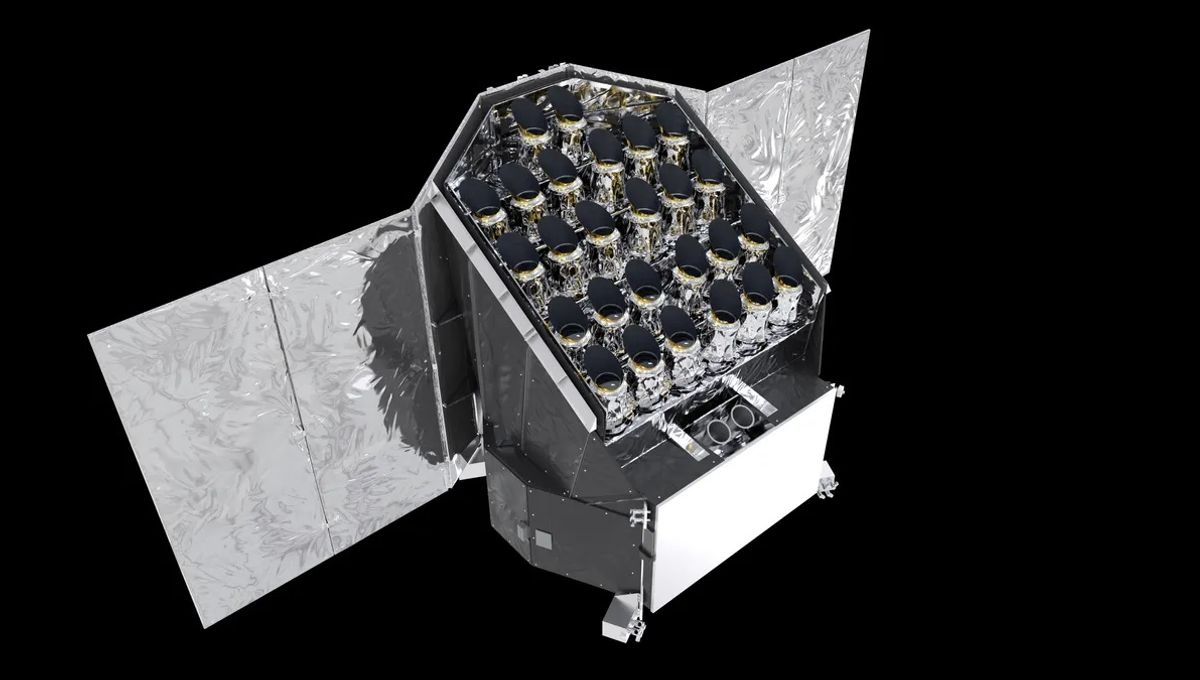
In our quest to understand if there is life elsewhere in the universe, we start with the only example we have: life on Earth. So, a good bet to find aliens is to find another Earth. Of the over 5,000 exoplanets known, we are yet to find Earth’s twin. However, this might change very soon. Enter, the European Space Agency’s (ESA) PLATO mission.
PLATO stands for PLAnetary Transits and Oscillations of stars and it has a clear goal in mind. It will look for nearby potentially habitable worlds like Earth around Sun-like stars.
“One of the major goals is to find an Earth-Sun equivalent if you like. So an Earth-sized planet in the habitable zone of a star like the Sun. And to find it around a star that’s bright enough that we can really measure the planet’s mass, measure its radius, so we can be sure that it’s real,” Dr David Brown, from the University of Warwick, told IFLScience. “That’s our headline goal if you like.”
The telescope is not just a planet-hunting observatory, it is also a stellar observatory, collecting data on a huge number of stars, and the mission team sees the combination of the two as a crucial reason for how this telescope will be revolutionary.
We’re really trying to understand planetary systems as whole entities rather than sort of planet by planet.
Dr david Brown
“You have two halves of the mission. One is exoplanets and one is the stars themselves. From a scientific point of view, I think that’s quite exciting that we have these two halves working together to get the best possible science we can out of it,” Dr Brown explained.
Among the secondary goals is the plan to conduct a census of terrestrial planets but also of star systems as a whole. Another objective is to find other solar systems like our own. So far, our little corner of the universe is quite unique but we do not know if it is truly exceptional or not.
“We have a bunch of other scientific objectives,” Dr Brown told IFLScience. “How well can we understand the way that planetary systems evolve and change over time, really? We’re really trying to understand planetary systems as whole entities rather than sort of planet by planet.”
Beyond the goals, there is another thing that makes PLATO unique: it is not a single telescope. It’s actually made up of 26 different ones. Two are fast cameras, the remaining 24 are normal cameras arranged in groups of six with a slight offset. This gives the telescope a large field of view, improved performance, and a way to quickly dismiss false positives.
“One of the big problems with transiting exoplanets is figuring out which of the things you find are real and which ones are not. Using multiple telescopes we built a way to get rid of some of the mimics that we might otherwise see. Plus it also just looks quite cool,” Dr Brown excitedly explained. “You’ve got this big square with all of these telescopes pointing at you and it looks really unique!”
Dr Brown presented an update about PLATO at the National Astronomy Meeting at the University of Hull this week. The telescope is being assembled and has passed critical checks recently. The mission is on track to launch in December 2026. It will lift off from French Guiana on an Ariane 6 rocket, the same type of rocket that had its inaugural launch last week.
Source Link: Finding "Earth’s Twin" May Be Shortly Within Reach